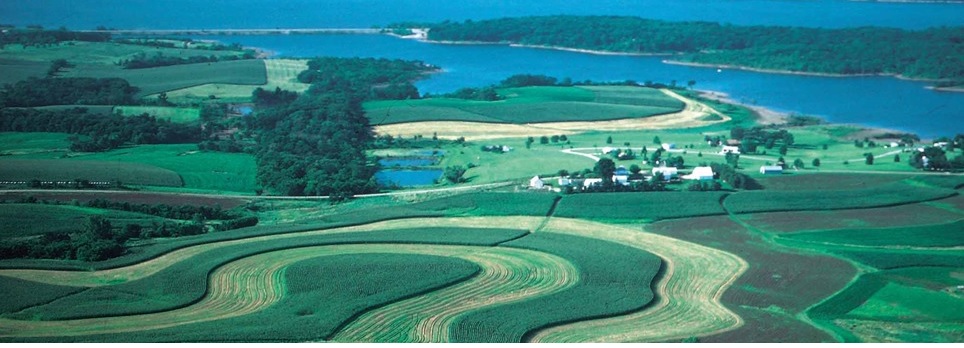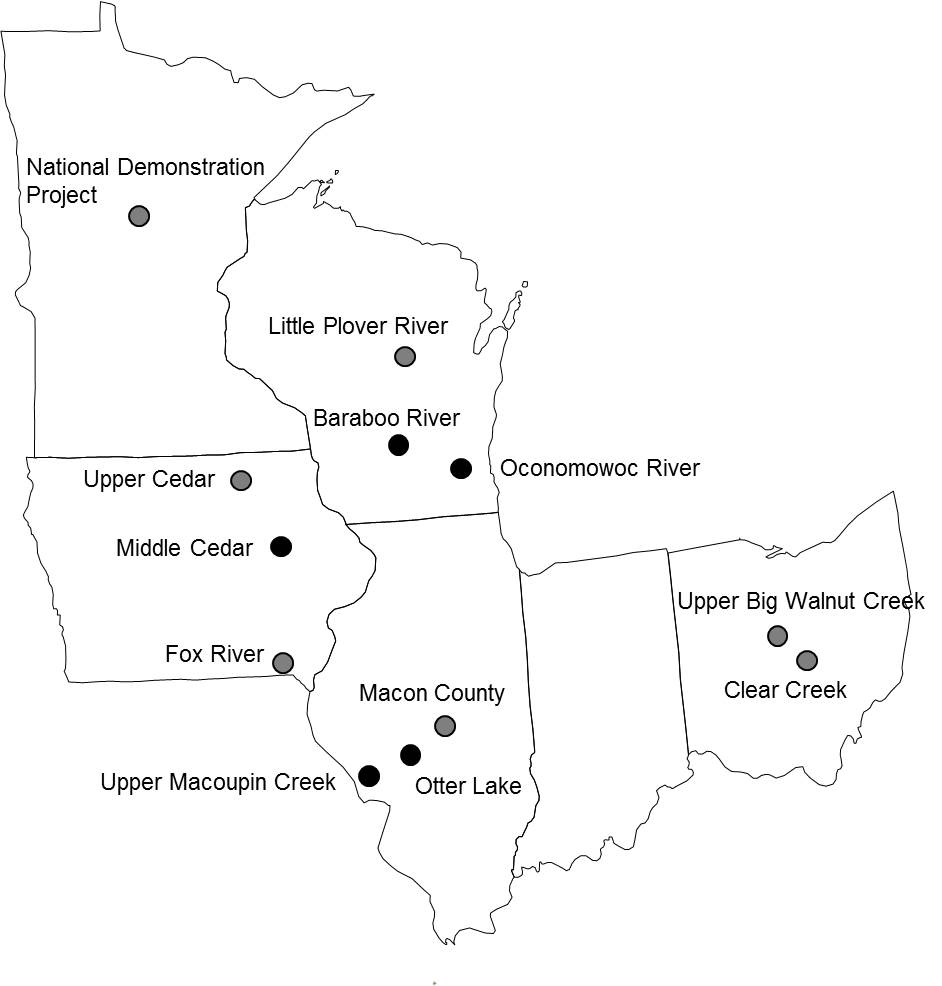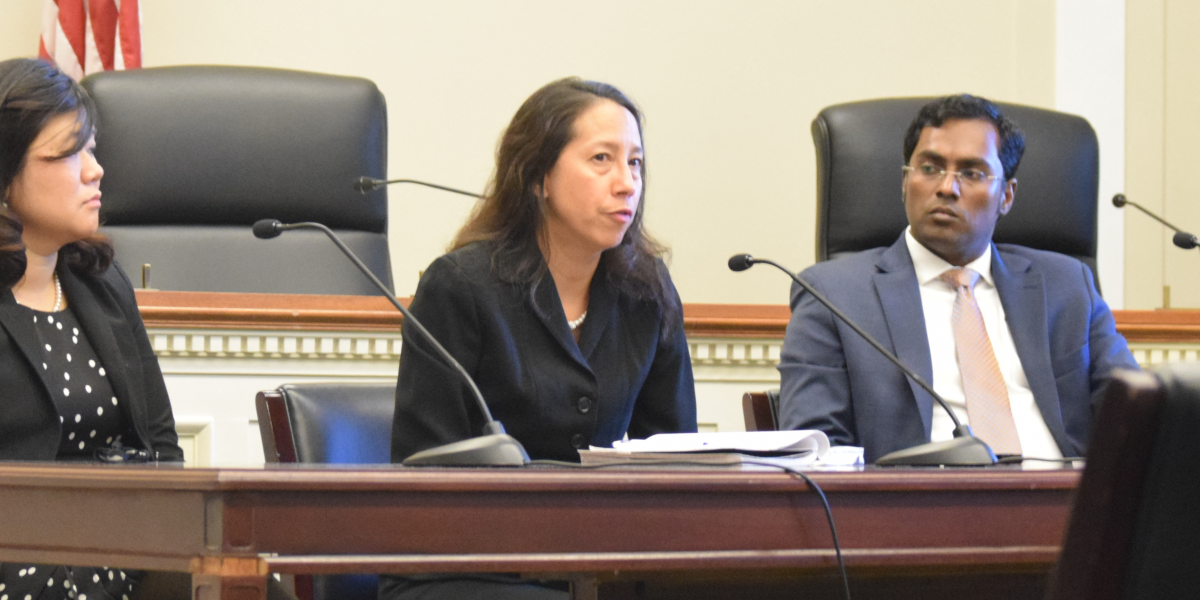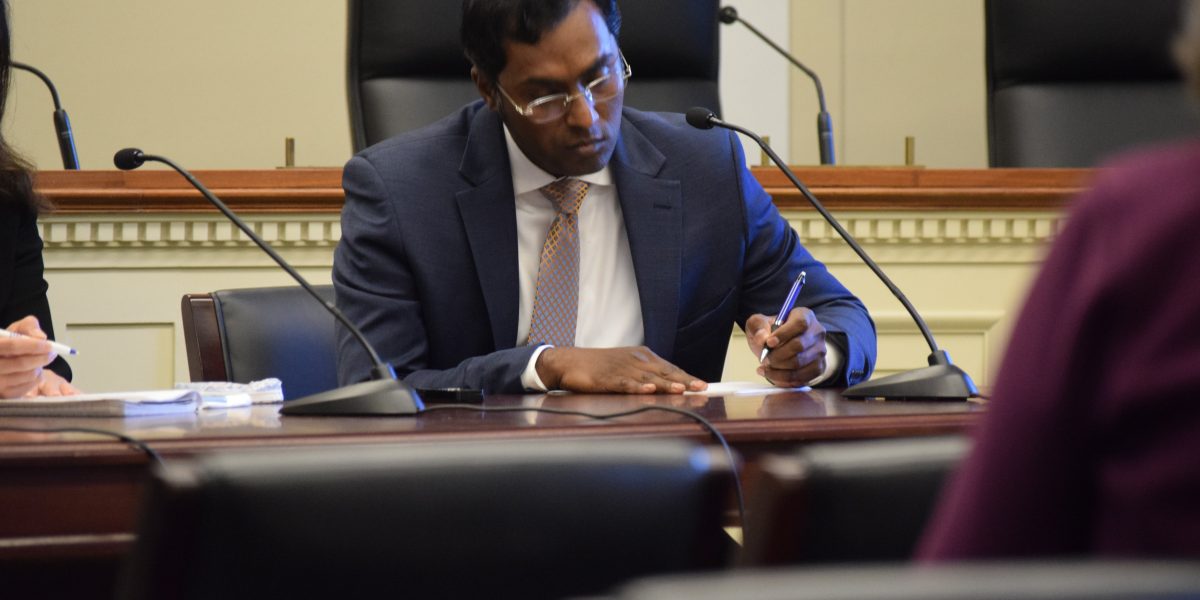
A Northeast-Midwest Institute (NEMWI) Congressional briefing on December 11th, 2018, examined current conservation practices through the lens of assessing the effectiveness of the Regional Conservation Partnership Program (RCPP). The briefing looked at the promise of enhanced monitoring and review of conservation projects, included early results from an ongoing RCPP project in Upper Macoupin Creek in Illinois, and previewed a forthcoming study by the NEMWI on improving the effectiveness of conservation efforts that will focus on a set of locations across the Upper Mississippi River Basin. The projects that have been selected for the study to date are highlighted in the map below:

This briefing could not be timelier; the House and the Senate both just voted to approve the conference committee report of the Farm Bill this week. The conference committee report served as a compromise between the two versions of the text put forward by the two houses of Congress. The Farm Bill is the single largest source of conservation funding in the U.S., providing close to $5 billion in mandatory spending annually for conservation projects through the U.S. Department of Agriculture (USDA). These conservation dollars fund various voluntary projects that conserve natural habitats, reduce agricultural runoff, safeguard watersheds, and achieve numerous other vital goals. As important as these projects are for national water quality, biodiversity, and climate issues, they are chronically underfunded even with the Farm Bill’s support. This reality makes it imperative that national conservation efforts yield as productive of a result with existing resources as possible.
To explore ways of improving the effectiveness of the current regime, NEMWI convened a panel of experts from the USDA and conservation NGOs to delve into the various issues involved in conservation projects, the challenges they face, and how to improve their effectiveness in the future. The panel included the following experts:
Ms. Rebekah Lauster is an RCPP Program Specialist at the Natural Resources Conservation Service (NRCS). This federal agency handles all conservation funding and program implementation, including RCPP, which is a particular focus of a study led by NEMWI. Ms. Lauster provided the needed context and background on RCPP Program, its structure and implementation, and how it differs from other conservation programs.
Dr. Michelle Perez is the Water Initiative Director at the American Farmland Trust (AFT). She is a noted expert on conservation and water quality, and has written numerous reports on this topic, including “Water Quality Targeting Success Stories,” jointly published by AFT and the World Resources Institute that featured lessons learned from several conservation success stories under a different conservation program. Dr. Perez shared insights from her report as well as updates from the Upper Macoupin Creek Project in Illinois, which is currently funded under the RCPP.
Dr. Sridhar Vedachalam is Director of the Safe Drinking Water Research and Policy Program at the NEMWI. He is currently leading a study funded by the Walton Family Foundation to review selected RCPP projects that encourage various stakeholders to work together, providing a readily-accessible data set on the conservation methods adopted and their impacts on the environment. Dr. Vedachalam previewed the study, including background and objectives, research plan, and intended findings.
A full audio recording of the briefing is available here.
Slides from presentations are available here.
![DSC_0914[1]](https://www.nemw.org/wp-content/uploads/2018/12/DSC_09141-1200x600.jpg)
![DSC_0856[1]](https://www.nemw.org/wp-content/uploads/2018/12/DSC_08561-1200x600.jpg)
![DSC_0850[1]](https://www.nemw.org/wp-content/uploads/2018/12/DSC_08501-1200x600.jpg)
![DSC_0913[1]](https://www.nemw.org/wp-content/uploads/2018/12/DSC_09131-1200x600.jpg)
![DSC_0933[1]](https://www.nemw.org/wp-content/uploads/2018/12/DSC_09331-1200x600.jpg)

